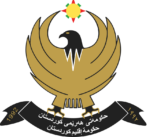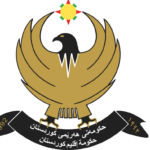Prime Minister Masrour Barzani’s speech at the World Governments Summit 2024

Erbil, Kurdistan Region (GOV.KRD) – Prime Minister Masrour Barzani delivered the following speech today at the World Governments Summit 2024 in Dubai:
Before I start my speech, I would like to express my deepest condolences to the people and government of the United Arab Emirates and the Kingdom of Bahrain and the families of the fallen members of their armed forces in the recent terrorist attack in Somalia.
Excellencies, organisers of the World Government Summit, and distinguished guests, a very good afternoon to you all.
It is my pleasure to address you today at the opening of this gathering of global thinkers and leaders. I am pleased to be back in Dubai for this year’s annual summit, and I want to express my appreciation to His Highness Sheikh Mohammed bin Zayed Al Nahyan and His Highness Sheikh Mohammed bin Rashid Al Maktoum for bringing together like minds; those committed to the betterment of society and humanity by marshalling the best that we can offer as decision makers.
It is a chance to exchange ideas, to explore ways to do things differently, to test ourselves and to be better. This is a challenge that we must all embrace.
I address you today as the Prime Minister of the Kurdistan Region of Iraq which has over the past 20 years built and consolidated a region from the husk of the former Iraq. But I speak to you also as someone who stands alongside decision makers in our proud region who are confronted by many of the same challenges.
All of us have, in some way, become accustomed to turmoil and upheaval, and numerous crises that have required deft navigation over many decades, to say the least. War, insurrection, hardship and economic instability have unfortunately become part of our hardwiring. There is no denying the toll that this has taken on social and economic development.
But as I have engaged with stakeholders across the Middle East and abroad, I have noticed a will to break free from the tragedies of our collective past. In all corners of our region, there is a determination to embrace progress and a recognition that change is not just inevitable, but necessary.
People yearn for the right to shape their destinies, both individually and collectively. Self-determination is a driving force of human nature and we need to provide citizens with an environment in which they can flourish.
I believe there are four pillars towards achieving the progress that we all seek; political stability, security, economic prosperity and combating climate change. These themes are interlinked, but addressing them also needs a tailored approach.
There is no denying that many geopolitical issues in our region have been placed in the too-hard basket for too long. But why let them linger? Having the courage to acknowledge that a problem exists is a step in the direction towards solving it.
The crisis we are witnessing in Palestine is deeply troubling for many of us for several reasons; its humanitarian toll on civilians; its capacity to fuel chaos well beyond Gaza, and because the root causes of the injustice remain unaddressed. Had the foundational rights of the Palestinians been dealt with 80 years ago, or in the decades since, there would have been far less chance of the tragedy we are seeing now. Instead the cause has been left to fester, and stakeholders with conflicting agendas have filled the vacuum that emerged.
The same can be said of the plight of the Kurdish people. We too have legitimate claims towards self-determination. These are rights that have been acknowledged by our friends and allies, who at the same time tell us that political imperatives impede their help in delivering a historical justice.
We must accept that injustice, together with inequality, poverty and corruption all feed political instability. Citizens, communities and other parts of society must feel that they have received some sense of natural justice in order to show loyalty and contribute to societies in the ways expected of them. They must be allowed to determine their future on their own terms. Respecting the rights of nations, or in our case a people, should not scare anyone. To do so strengthens stability and fosters prosperity.
On the security front, we need to do more to address our collective security. Our collaboration as a region to defeat the scourge of ISIS was a shining example of how things can be done and how like-minded people can work together. As Gaza, Iraq, Syria and the Red Sea boil, turning to a new plan to safeguard national, regional and global interests is necessary.
Those who seek wars to advance their interests by threatening regional security must be held accountable.
The international community must not be indifferent towards the origins of threats because vested interest may overlap with them. On the regional stage, we are paying a high price for what we stand for. The region now faces a crisis of a different nature, and we must all collectively work to safeguard regional security and stability. In our case, we have been unjustifiably targeted. This aggression must end. As I have said in the past, here and in other capitals, Kurdistan has never been a threat to anyone in the region. We are a factor of peace and stability, and we want regional conduct to be based on mutual respect and interests.
We expect support and need to work together to stave off grave security threats which could undermine all we have achieved.
Let this be a moment in history where leaders everywhere can say enough is enough, we need enduring solutions to clearly identified problems.
We stood by our allies during the plague of ISIS. It was the right thing to do, and had we not done so, the region would now be a very different place, plagued by global terrorists who had consolidated a foothold in the heartland of the Middle East, sowing chaos among us at will.
But we have prevailed. The struggles of the past 20 years and of the decades of Kurdish resistance that foreshadowed them have enshrined for us a rightful stake as a sovereign people and an integral part of the Middle East.
Placing our economy on a firm footing has been a central plank of what we have done in Kurdistan, and economic development more broadly is a vital component of regional growth and stability.
Leaders must focus on the wellbeing of people, and continue to invest in human resources. Best practice governance is critical to developing our societies and political cultures, and citizens have a right to expect that from us. Prosperity and development create jobs, fuelling hope and ambition. If we provide economic and political ecosystems that minimise poverty and corruption, we leave less space for extremism, and create roots for political stability and security.
I can say with satisfaction that on one of the biggest challenges of all, climate change, there is a collective will to do things differently. The UAE’s successful hosting of the COP28 summit last year led to an unequivocal commitment to reverse the tide of global warming before its effects change our planet forever.
The challenge before us required bold decisions to diversify our energy sources, and invest in renewables.
The UAE is a world leader in such new technology. Dubai and Erbil are both at the epicentre of a warming planet and we are fully aware of the risks of ignoring a catastrophic reality.
Many of the commitments made so far go against short-term economic interests. They were made to safeguard future generations. It is no secret that to transition to cleaner energy sources may cost more in the short term. But the long term savings to us all are immeasurable.
We must have the courage, and frankly the sense to make such tough decisions. If we fail to do so, our part of the world will become a furnace in our lifetime. Large tracts of land will be uninhabitable, water sources will dry up and food security will prove an enormous challenge. Desertification, mass immigration and economic collapse could follow.
We will then see internal migration, international migration and demographic changes. Competition for scarce resources will push peoples into conflict. This will fuel an international problem with multiple dimensions. Every country will then have to deal with the economic, political, cultural and security challenges that mass immigration brings.
Leadership with a defined purpose is now more necessary than ever. We must encourage and reward leaders of conviction, among decision makers currently on the global stage and in the generations to come. We must clearly separate those who stand with progress and modernity from those intent on holding us back.
Together we can summon the will to confront the issues that hold us back. It is not always easy as leaders to look to the horizon. But we must. We owe it to those who put their faith in us.
I thank you all very much for being here today and may this conference be a forum for big ideas.
Thank you very much.









